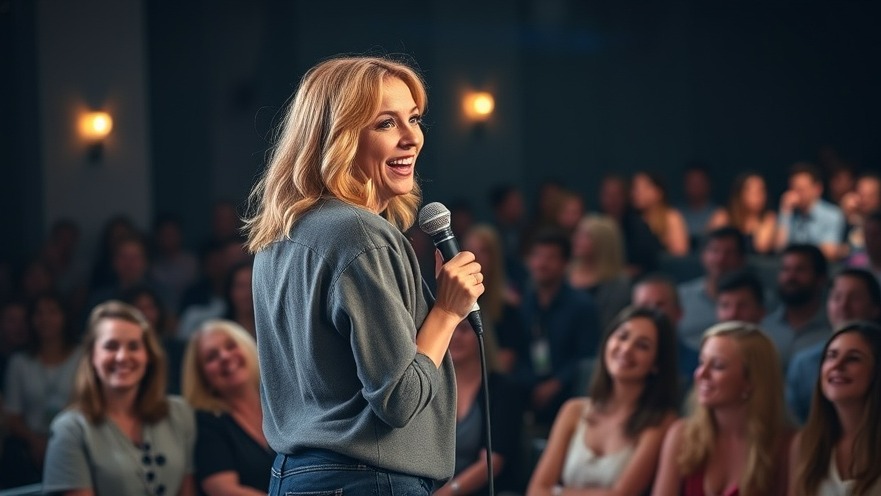
The Fine Line Between Comedy and Censorship
In today’s political climate, the world of comedy is fraught with challenges, especially for those who dare to delve into satire. Comedians like Jena Friedman, Michelle Wolf, and Sam Jay are pushing boundaries while navigating the threats posed to freedom of speech in the ever-evolving landscape of American politics. At the heart of this discussion is an alarming incident involving Friedman, whose encounter with US border control brought the realities of political comedic expression to the forefront.
Comedy as a Reflection of Societal Climate
Friedman’s experience at the Vancouver airport—where her joking response about political satire was met with scrutiny—places a spotlight on the sensitive nature of political comedy in the current era. Her narrative isn’t just one of personal anecdotes; it resonates on a larger scale, reflecting a society where freedom of expression sometimes feels stifled. Political comedy not only serves as entertainment but also as a crucial commentary on the injustices of our times, highlighting the importance of humor in challenging authority.
The Evolution of Political Comedy
Historically, comedy has been a platform for voicing dissent and reflecting societal issues. From George Carlin's incisive critiques to Jon Stewart's political satire on The Daily Show, the art of comedy has evolved to mirror the cultural zeitgeist. Today, comedians leverage platforms like social media, reaching audiences directly but also facing the repercussions of their jokes, as seen with performers who have faced backlash for politically charged materials. The current landscape challenges comedians to tread carefully while still finding their voices amidst potential censorship.
Comedians Speaking Out: The Importance of Satire
Comedians like Michelle Wolf are using platforms like stand-up specials to voice their thoughts on the current political climate and push back against fear-mongering. Following her infamous routine at the White House Correspondents’ Dinner, Wolf made headlines for brazenly confronting political figures with humor, a tactic that both entertains and provokes thought. As she now resides in Barcelona, her work continues to challenge political ideals while raising awareness about the nuances of being a comedic voice within a politically charged framework.
A Personal Journey: Navigating Grief and Politics
Friedman’s latest show, Motherf*cker, is a poignant blend of grief and political discourse, suggesting a shift in how personal life experiences intersect with political commentary. By merging these two themes, she hopes to forge connections with audiences grappling with similar emotions. Her willingness to explore these heavy subjects amid the backdrop of humor exemplifies a potent form of satire that resonates deeply with the present-day climate of unease.
Engaging with Political Humor: Risks and Rewards
As digital nomads—individuals who navigate various cultural landscapes—it’s essential to recognize the power that political satire holds in fostering conversations. Comedy can empower communities, provoke reactions, and challenge existing narratives. However, comedians often find themselves on the perilous edge of public opinion, resulting in potential repercussions ranging from backlash to censorship. This delicate balance underscores the need for comedians to engage responsibly with their audiences.
Conclusion: Embrace the Power of Satire as a Reflective Tool
The performers at this year’s Edinburgh Fringe represent a new wave of comedians who aren’t just entertainers but also social commentators. They challenge societal norms through laughter, and their experiences remind us that political satire remains a powerful tool for engagement and critique. As you continue to observe or partake in political comedy, contemplate its implications—not just as entertainment, but as a means to reflect on the world we live in.
As we navigate the intersection of politics and humor, take inspiration from these comedians who use their platforms to spark dialogue and reflect real-life concerns. Consider how you might participate in these conversations, whether through your own creative expressions or simply by engaging with performances that push the envelope of political discourse.
 Add Row
Add Row  Add
Add 




Write A Comment